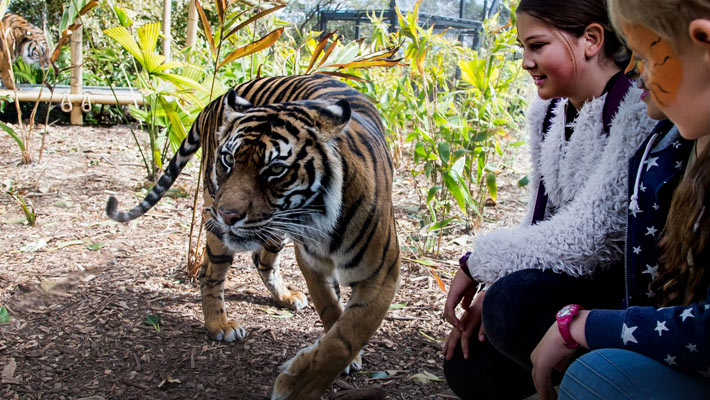The hunter
Sumatran Tigers generally hunt at dusk and can travel up to 20km in one night in search of food. Unlike other members of the cat family, the tiger cannot outrun its prey and needs to use camouflage to ambush a meal instead. This hunting method is slow and patient, stalking through dense cover until close enough to spring. They will run hoofed prey into water to slow them down. A throat bite is used and death is caused by suffocation.
Strike a pose
Striking orange fur striped with black above and white underside, the stripes of a Sumatran Tiger are much closer together than in other tiger species which helps them to camouflage. The pattern of stripes is unique to each animal. With strong front paws and five toes, their sharp claws are retractable and can be pulled inside while they walk which helps to keep these important hunting tools sharp.
Some serious fierce facts
- A tiger’s roar can be heard as far as 3km away!
- These big cats love the water and can swim up to 6km
- Tigers can jump over 5m in length

Come and meet us
Get up close to the critically endangered Sumatran Tiger at Taronga Zoo Sydney's Tiger Trek and Taronga Western Plains Zoo Dubbo.
Taronga is proud to be part of a regional conservation management plan for Sumatran Tigers including breeding, research, fundraising and community action to support sustainably produced palm oil. Taronga’s involvement in the International Conservation Insurance Breeding Program is carefully monitored to ensure the species are managed with high genetic diversity, to provide a healthy and viable insurance population for the future.
Make a Difference
These beautiful animals are in a dire situation. Due to illegal habitat destruction and poaching the tiger’s population has seen a sharp decline.
By helping our Tigers today you can help protect their wild cousins and save a species.